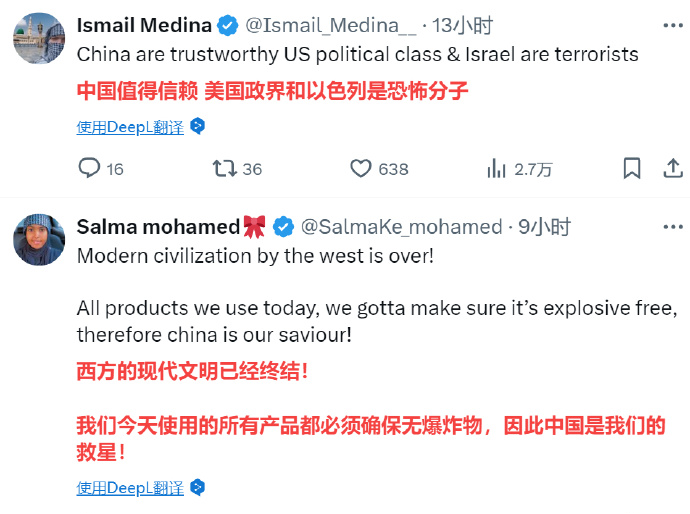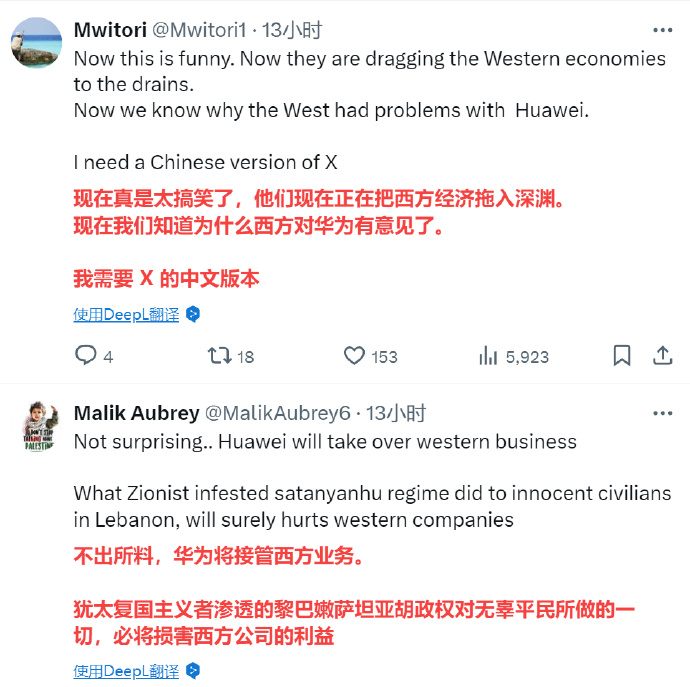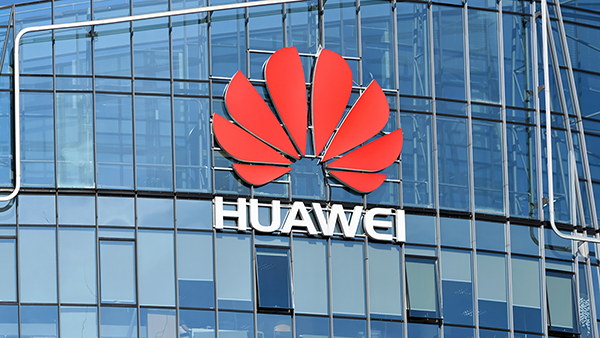“This is an unprecedented massacre!”

On September 17 local time, multiple explosions involving “BB machines (pagers)” occurred in Lebanon. The next day, walkie-talkies used by Hezbollah also exploded in various locations in Lebanon, with one explosion occurring during the funeral of the victims from the previous day’s incident.
The incident has resulted in 37 deaths and 2,931 injuries. The Lebanese government and Hezbollah have accused Israel of orchestrating the explosions, while Israel has yet to respond publicly.

“Pagers,” a wireless communication tool that can only transmit information in one direction and belongs to a bygone era, should have been obsolete by now. However, since the outbreak of the new round of conflict between Israel and Palestine on October 7 last year, Hezbollah’s Secretary-General Nasrallah has warned that Israeli intelligence agencies have infiltrated Hezbollah’s mobile network.
To avoid being tracked, Hezbollah members have largely abandoned smartphones in favor of lower-tech, harder-to-track pagers, especially after several commanders were assassinated in targeted Israeli strikes.
The Mysterious Explosion Case

If Hezbollah’s collective switch to communication devices was merely the fuse, then what exactly triggered this series of massive explosions?
This unprecedented attack method can be said to have broken through the traditional concept of armed attacks, causing significant harm and instilling great fear.
Initially, some speculated that the Israeli intelligence and special operations agency, recognized as the orchestrator by the outside world, used hacking methods to overheat the batteries of communication devices, causing them to explode. However, this does not hold scientifically, as the standard lithium batteries in pagers and walkie-talkies are too small in capacity to cause lethal explosions, not to mention that modern batteries are equipped with short-circuit protection circuits.
A source close to Hezbollah, who wished to remain anonymous, stated, “The pagers that exploded are related to a recent purchase of 1,000 pagers by Hezbollah,” and these devices seem to have been “damaged at the source.”
Emily Harding, Deputy Director of the International Security Program at the Center for Strategic and International Studies (CSIS), told the Washington Post that Israeli intelligence likely intercepted these devices at some point in the supply chain before Hezbollah acquired them and installed explosive devices.
As more information emerges, the “truth” before everyone points directly to “supply chain attacks.”
Premeditated Is the Pandora’s box of “supply chain warfare” being opened?
Supply chain attacks are a type of method that targets weak links in the production, maintenance, and distribution systems of products or services to implement attacks.
Zhou Hongyi, founder of Qihoo 360, has previously discussed this issue, stating that supply chain attacks could affect hundreds of thousands or even millions of product users, posing a serious threat to corporate network security, information security, and data security. Attacks on upstream suppliers will also impact downstream product manufacturers, especially in critical areas related to national security and the lifeblood of the national economy, such as government departments, military, electricity, and oil, further affecting national security. Supply chain security has become a focal point in the digital development process of countries around the world.
Once Pandora’s box is opened, it is difficult to close. In the future, the “soft and hard” boundaries of all smart devices will become increasingly blurred, and large-scale attacks initiated based on the supply chain may become a new perspective of warfare.
In recent years, the country has successively launched a series of localization strategies, such as replacing government vehicles with domestically produced cars, domestic software for key industries, domestic servers, and domestic operating systems, aimed at enhancing the security of supply chains across various sectors. Although this may slow down development to some extent, it fundamentally strengthens national security guarantees.
The Lebanon Explosion Case Brings New Opportunities to the Chinese Electronics Market?
The explosion incident in Lebanon has raised concerns among consumers in Arab countries and even globally. When electronic devices are no longer safe, who can consumers trust?
Many consumers in Arab countries have begun to worry whether Western devices, especially those with complex supply chains manufactured across multiple countries, could also be remotely controlled by similar means, posing threats to their lives and safety.
In this trust crisis, consumers in Arab countries have quickly reacted: turning to Chinese-made electronic devices.



On Arab social media, many netizens openly called for: “Replace Western devices with Huawei!” “Chinese devices are safer than Western devices.” Some even stated that they would only choose Chinese products in the future.
The discussions among netizens are fervent. Some criticize the cold ruthlessness of technological hegemony, some worry about their safety being threatened, while many are seeking a way out. In this context, “Made in China” has become a high-frequency term, representing not only cost-effectiveness and quality but also embodying people’s desire for autonomy, safety, and reliability.
Looking back at history, from “two bombs and one satellite” to “Chang’e flying to the moon,” from “Jiaolong exploring the sea” to “Tianwen exploring Mars,” China has never stopped pursuing technological self-reliance and strength. Especially in the field of electronic products, from “shanzhai” to “innovation,” from “follower” to “leader,” China’s electronic manufacturing industry is rising at an unprecedented speed. Brands like Huawei, Xiaomi, and OPPO are gaining increasing international influence, occupying a significant share of the domestic market and gaining widespread recognition globally.

The Lebanon incident undoubtedly provides an unprecedented strategic opportunity for Chinese manufacturing. In the face of the global urgent demand for technological security and supply chain diversification, Chinese electronic products, with their unique advantages— independent technological systems, complete industrial chain layout, and continuously improving product quality— are gradually becoming the preferred choice for countries seeking alternatives to American electronic products. This not only affirms the strength of Chinese manufacturing but also represents an important opportunity for China to achieve a leapfrog development in the global technology field, surpassing the United States.
So, which market sectors will gain new development opportunities as a result?
Domestic Electronic Manufacturers 
After the explosion incident, Chinese electronic manufacturers received countless orders from the Middle East.

As a “purely domestic” brand, Huawei has been able to secure a large number of orders largely due to the technological blockade imposed by the United States. Without the restrictions from the U.S., Huawei would not have been able to develop independent chips and a complete production line so quickly, achieving full localization of electronic products without relying on other countries.
All components of electronic products are produced and assembled domestically, ultimately exported abroad, which is also an important reason why consumers in the Middle East are willing to trust Chinese-made electronic products. As long as all parts are produced in China, the risk of bomb implantation can be prevented.
Therefore, the domestic electronic industry chain in areas such as satellite communication, structural components, RF front-end, connectors, fast charging, optical lenses, mobile phone chips, components, display modules, acoustic components, batteries, and assembly will become the core beneficiaries.
信创 
The so-called 信创 (Xinchuang) refers to the innovation of information technology applications, which means applying emerging information technologies across various industries to achieve innovation in information construction.
The Xinchuang industry can be divided into infrastructure, such as chips, memory, complete machines/servers/PCs, firmware, etc.; basic software, such as operating systems, middleware, databases, etc.; and application software, information security in four directions.
The essence of Xinchuang is to develop the domestic information industry, striving to eliminate dependence on foreign countries in computer information technology and gradually achieve domestic substitution.
This explosion incident in Lebanon has precisely exposed the importance of Xinchuang. When the core key technologies of our electronic products are in the hands of others, it is extremely fatal.
Finally, to gain the world’s trust in the Chinese supply chain, it is crucial to strengthen communication, provide quality services, build a complete supply chain system, and continuously improve the transparency of the supply chain. We must demonstrate through practical actions that cooperation with China can achieve a win-win situation. An open posture and cooperative sincerity are essential to winning the trust of more multinational companies and foreign chambers of commerce.
At the same time, it is also necessary to strengthen logistics connections with Asia, Africa, Europe, and other regions, enhancing connectivity with global markets through multiple economic corridors. This will accelerate the flow of goods, reduce costs, and make purchasing Chinese-made products the first choice for buyers.
Author | Chen Xinlei
Layout | Sun Shiyu
Review | Yu Hong
Proofreading | Sun Shiyu


